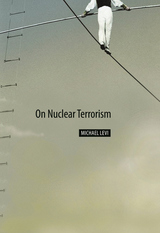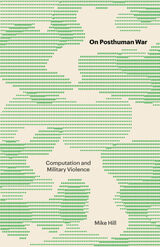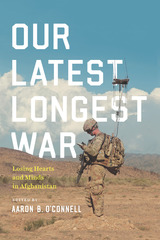6 start with O start with O

A comprehensive challenge to prevailing understanding of international implications of oil wealth that shows why it can create bad actors
In a world where oil-rich states are more likely to start war than their oil-dependent counterparts, it’s surprising how little attention is still paid to these so-called petrostates. These states’ wealth props up the global arms trade, provides diplomatic leverage, and allows them to support violent and nonviolent proxies. In Oil, the State, and War, Emma Ashford explores the many potential links between domestic oil production and foreign policy behavior and how oil production influences global politics.
Not all petrostates have the same characteristics or capabilities. To help us conceptualize these differences, Ashford creates an original classification of three types of petrostates: oil-dependent states (those weakened by the resource curse), oil-wealthy states (those made rich by oil exports), and super-producer states (those that form the backbone of the global oil market). Through a combination of case studies and analysis, she illustrates how oil shapes petrostates’ behavior, filling a major gap in our understanding of the international implications of oil wealth. Experts have too often treated oil-rich states as passive objects, subject to the energy security needs of Western importing states. Instead, this book highlights the agency and power enjoyed by petrostates.
As the oil market undergoes a period of rapid change, Oil, the State, and War sheds light on the diversity of petrostates and how they shape international affairs.

Nuclear terrorism is such a disturbing prospect that we shy away from its details. Yet as a consequence, we fail to understand how best to defeat it. Michael Levi takes us inside nuclear terrorism and behind the decisions a terrorist leader would be faced with in pursuing a nuclear plot. Along the way, Levi identifies the many obstacles, large and small, that such a terrorist scheme might encounter, allowing him to discover a host of ways that any plan might be foiled.
Surveying the broad universe of plots and defenses, this accessible account shows how a wide-ranging defense that integrates the tools of weapon and materials security, law enforcement, intelligence, border controls, diplomacy, and the military can multiply, intensify, and compound the possibility that nuclear terrorists will fail. Levi draws from our long experience with terrorism and cautions us not to focus solely on the most harrowing yet most improbable threats. Nuclear terrorism shares much in common with other terrorist threats--and as a result, he argues, defeating it is impossible unless we put our entire counterterrorism and homeland security house in order.
As long as we live in a nuclear age, no defense can completely eliminate nuclear terrorism. But this book reminds us that the right strategy can minimize the risks and shows us how to do it.

Tracing war’s expansion beyond the battlefield to the concept of the human being itself
As military and other forms of political violence become the planetary norm, On Posthuman War traces the expansion of war beyond traditional theaters of battle. Drawing on counterinsurgency field manuals, tactical manifestos, data-driven military theory, and asymmetrical-war archives, Mike Hill delineates new “Areas of Operation” within a concept of the human being as not only a social and biological entity but also a technical one.
Delving into three human-focused disciplines newly turned against humanity, OnPosthuman War reveals how demography, anthropology, and neuroscience have intertwined since 9/11 amid the “Revolution in Military Affairs.” Beginning with the author’s personal experience training with U.S. Marine recruits at Parris Island, Hill gleans insights from realist philosophy, the new materialism, and computational theory to show how the human being, per se, has been reconstituted from neutral citizen to unwitting combatant. As evident in the call for “bullets, beans, and data,” whatever can be parted out, counted, and reassembled can become war materiel. Hill shows how visible and invisible wars within identity, community, and cognition shift public-sphere activities, like racial identification, group organization, and even thought itself, in the direction of war. This shift has weaponized social activities against the very notion of society.
On Posthuman War delivers insights on the latest war technologies, strategies, and tactics while engaging in questions poised to overturn the foundations of modern political thought.

Cyberattacks are one of the greatest fears for governments and the private sector. The attacks come without warning and can be extremely costly and embarrassing.
Robert Mandel offers a unique and comprehensive strategic vision for how governments, in partnership with the private sector, can deter cyberattacks from both nonstate and state actors. Cyberdeterrence must be different from conventional military or nuclear deterrence, which are mainly based on dissuading an attack by forcing the aggressor to face unacceptable costs. In the cyber realm, where attributing a specific attack to a specific actor is extremely difficult, conventional deterrence principles are not enough. Mandel argues that cyberdeterrence must alter a potential attacker’s decision calculus by not only raising costs for the attacker but also by limiting the prospects for gain. Cyberdeterrence must also involve indirect unorthodox restraints, such as exposure to negative blowback and deceptive diversionary measures, and cross-domain measures rather than just retaliation in kind.
The book includes twelve twenty-first-century cyberattack case studies to draw insights into cyberdeterrence and determine the conditions under which it works most effectively. Mandel concludes by making recommendations for implementing cyberdeterrence and integrating it into broader national security policy. Cyber policy practitioners and scholars will gain valuable and current knowledge from this excellent study.

Case studies explore how to improve military adaptation and preparedness in peacetime by investigating foreign wars
Preparing for the next war at an unknown date against an undetermined opponent is a difficult undertaking with extremely high stakes. Even the most detailed exercises and wargames do not truly simulate combat and the fog of war. Thus, outside of their own combat, militaries have studied foreign wars as a valuable source of battlefield information. The effectiveness of this learning process, however, has rarely been evaluated across different periods and contexts.
Through a series of in-depth case studies of the US Army, Navy, and Air Force, Brent L. Sterling creates a better understanding of the dynamics of learning from “other people’s wars,” determining what types of knowledge can be gained from foreign wars, identifying common pitfalls, and proposing solutions to maximize the benefits for doctrine, organization, training, and equipment.
Other People’s Wars explores major US efforts involving direct observation missions and post-conflict investigations at key junctures for the US armed forces: the Crimean War (1854–56), Russo-Japanese War (1904–5), Spanish Civil War (1936–39), and Yom Kippur War (1973), which preceded the US Civil War, First and Second World Wars, and major army and air force reforms of the 1970s, respectively. The case studies identify learning pitfalls but also show that initiatives to learn from other nations’ wars can yield significant benefits if the right conditions are met. Sterling puts forth a process that emphasizes comprehensive qualitative learning to foster better military preparedness and adaptability.

America’s goals in Afghanistan were lofty to begin with: dismantle al Qaeda, remove the Taliban from power, remake the country into a democracy. But not only did the mission come completely unmoored from reality, the United States wasted billions of dollars, and thousands of lives were lost. Our Latest Longest War is a chronicle of how, why, and in what ways the war in Afghanistan failed. Edited by historian and Marine lieutenant colonel Aaron B. O’Connell, the essays collected here represent nine different perspectives on the war—all from veterans of the conflict, both American and Afghan. Together, they paint a picture of a war in which problems of culture and an unbridgeable rural-urban divide derailed nearly every field of endeavor. The authors also draw troubling parallels to the Vietnam War, arguing that deep-running ideological currents in American life explain why the US government has repeatedly used armed nation-building to try to transform failing states into modern, liberal democracies. In Afghanistan, as in Vietnam, this created a dramatic mismatch of means and ends that neither money, technology, nor the force of arms could overcome.
The war in Afghanistan has been the longest in US history, and in many ways, the most confounding. Few who fought in it think it has been worthwhile. These are difficult topics for any American or Afghan to consider, especially those who lost friends or family in it. This sobering history—written by the very people who have been fighting the war—is impossible to ignore.
READERS
Browse our collection.
PUBLISHERS
See BiblioVault's publisher services.
STUDENT SERVICES
Files for college accessibility offices.
UChicago Accessibility Resources
home | accessibility | search | about | contact us
BiblioVault ® 2001 - 2024
The University of Chicago Press









